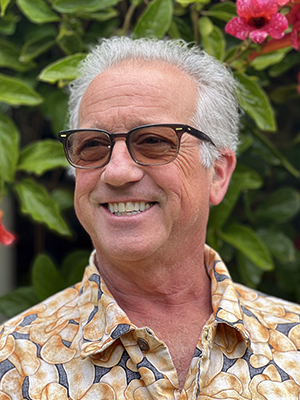|
|
Display Title 2025 Honorary Life Member Inductees
Page Content

Walter De JongAlthough he grew up in a potato family – his father Hielke was a potato breeder with Ag Canada in Fredericton NB – Walter didn’t intend to become a potato scientist himself. It was only midway through graduate studies at the University of Wisconsin-Madison, when he was having so much fun checking on the potatoes in his garden, that he realized working with potatoes might make a good career. A postdoctoral stint at the Sainsbury Laboratory in England in the mid-1990s facilitated his transition from virology to potato molecular genetics. Four years as a research scientist at the Scottish Crop Research Institute provided further exposure to the wonders of potato genetics and its interface with applied potato breeding. When a position as a potato breeder/geneticist came up at Cornell University, Walter immediately knew this was his dream job, and he has worked there since 2000. In the lab, Walter is most proud of his team’s work to identify the genes responsible for red and purple tuber skin (D, R and P). His breeding program has released many potato cultivars, building on outstanding germplasm developed by predecessor Robert Plaisted, including Lamoka (currently the most widely grown chipping variety in the US), Waneta, Lady Liberty, Bliss, Lehigh, and his personal favorite, Upstate Abundance (golf-ball-sized tablestock). While a relative latecomer to potato science on this side of the Atlantic, Walter wasn’t at all surprised by just how supportive, collaborative and downright fun in the North American potato research community is, because in his youth he’d seen so many examples of these traits in visiting scientists that his dad invited home for dinner.

Kent McCueKent earned his B.A. in biology from Harvard College in 1981 and then joined the ARCO Plant Cell Research Institute in Dublin CA as a Natural Products consultant. In 1988 he completed his McKnight Foundation supported Ph.D. at UC Davis studying biotic and abiotic stress in Parsley cell cultures and joined the Plant Research Laboratory at Michigan State University, to research salt tolerance in sugar beet. In 1991 he returned to California to work on heavy metal tolerance in fission yeast at the USDA/UC Berkeley Plant Gene Expression Center. In 1995, Kent joined the ARS at the Western Regional Research Center in Albany, California, where his research focused on gene cloning and stress response of starch biosynthetic enzymes in wheat. In 1998, he became a permanent Research Geneticist in the Crop Improvement and Utilization (now Crop Improvement and Genetics) Research Unit in Albany to identify genes and manipulate the steroidal glycoalkaloid pathway in potatoes. Kent continues to work on genetic engineering strategies and mechanisms of disease tolerance in potatoes and other crops. Kent joined the PAA in 1999 and attended his first meeting in Toronto in 2002. He was elected Director of the Physiology Section in 2004 and finished as Chair of the section in 2009. He was then elected a Director of the Executive committee in 2011 and again in 2015. After an unsuccessful bid for President, he was elected to the President succession in 2017 serving as President in 2020 (through covid). He has served on numerous PAA committees and continues to participate in the Finance and Endowment committees. Since 2015 he has served as Senior Editor (Physiology) for the American Journal of Potato Research.
|
|
|
